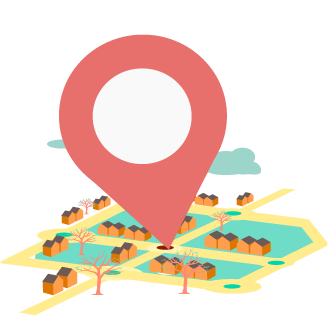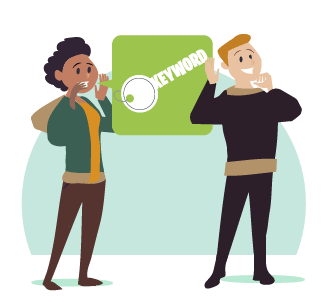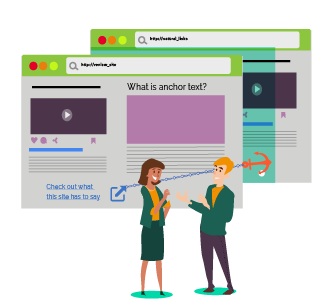You’ve probably seen or heard a lot of digital marketing people talk about local SEO is one of the most significant aspects to marketing success.
However, to agree with popular opinion, first, you need to understand what precisely local SEO is, why it’s so relevant to the business world, and how it much it can impact businesses.
This article aims to give you a clearer picture of why local SEO holds such a dominant place in online marketing, and why local SEO can help you grow your business.
Whether you are a small local business owner, or if you operate several business branches across multiple locations, you’ll find that having local SEO can give your bottom line a significant boost.
What Is Local SEO?
In a nutshell, local SEO is about how to improve your website to rank well in Google for a location-specific audience.
As you know, your company’s website is an avenue for your business to reach across the entire world.
But if your prospective customers for your business is actually located in a city that you operate in, there isn’t much incentive to cast such a wide net online, when you can direct most of your SEO efforts in the area you serve.
Hence, you’ll need to optimise your SEO about your city or district name, such as integrating your contact details such as your address and phone number.
You want your prospects to know where you are located near them and are able to locate you easily outside of the internet (if required).
Local SEO promotes your business’ visibility on location-based searches within your region.
It’s a slight variation of your standard SEO marketing. Local SEO optimisation includes targeting searches with specific geolocation qualifiers, such as city, town, district, counties, postal codes – any information that Google can pinpoint and determine where your business is at.
Why Is Local SEO Important?
Let’s say you have a local business in Bristol, like a brick-and-mortar store, or have a sales office that your customers go to make transactions, Local SEO lets potential local customers find you.
As long as the majority of your revenue comes from local customers that are located in the same city as you are, you need to optimise your SEO for that area.
Local SEO is extremely vital, especially if you have a business with a physical storefront or one that provides a service in a particular city or county.
In fact, up to 78% of location-based searches result in an offline purchase, and 72% of consumers who run a local search will visit a store within 10km of their location.
Now, these numbers will only keep growing, because as the number of mobile users increases, so does the need for well optimised local SEO.
Also, since the leads derive from people who are specifically searching for products or services that your business has to offer, it is almost guaranteed that they are qualified leads.
This is good news for your business because it means they are much more likely to convert into paying customers.
3 Steps to Getting Your Business On Google
To thrive in local Google SEO, there are 3 steps you need to take: Optimising your Google My Business account, improving your on-page SEO by updating your website and managing your off-page SEO.
While it may sound overwhelming, it’s totally feasible to get ahead in all three steps, as long as you put in the time and effort.
1. Optimising for Google My Business
Google My Business is the ultimate service for local business search as My Business is a part of Google’s offering to help the local business meet Google users’ needs.
With My Business, Google can verify your business as a legitimate business, and you can stand a chance to earn the highly reward sidebar business listing space in Google local search.
First, create and claim your own Google My Business page. To do that, you will need to verify your business via a variety of methods, such as through the phone or over email.
Once that is done, use your account and start creating Posts on Google and start engaging your customers.
Some of the ways to encourage interactions include asking customers to write reviews, then share them online, and responding to all the reviews genuinely while specifying your location.
One example of your response can be, “We thank you for your feedback on our [product/service] in [city, town]. At [your company], we value your input highly, and we look forward to serving you again. Thanks! The [full company name] team.”
1. On Page Local SEO optimisation
Here are some of the measures you can take to optimise your business’s SEO for local search.
Improve Internal Linking Structure
While it’s always more ideal to build more backlinks than internal links, tweaking your internal linking structure can bring a positive impact to your SEO rankings.
Internal links are essential because they help to make your website easier to navigate, bringing your website’s user experience up.
With a well-developed internal linking structure, you allow Google to quickly crawl for information on your site, making you rank faster in local searches.
Having a hierarchal link structure allows your web pages with high authority distribute its ranking power to other weaker pages, moving your entire website up Google’s ranks as a whole.
Look for opportunities to link related web pages to each other, but try not to put too many links that go to the same page unless it improves the user experience.
Optimise your URL, Title Tags, Headers, Meta Description, and Content
Every piece of content on your website creates a new indexed page for your site, and that brings new opportunities to target location-relevant search phrase.
So whenever you publish any new piece of content on your business website, you’ll need to optimise the content for search engines by including high-volume keywords in your page’s URL, title, header, meta description, and body.
One of the best ways to do so is to create content that highlights success stories from past customers and case studies.
Not only do such content demonstrate your business’s capability in satisfying customers, but they also allow you to sprinkle location-specific keywords without being irrelevant.
Create Location Pages to your Website
If you own two or more physical stores in multiple locations, you should create location specific pages.
And it’s always good to embed a Google Map window on your About page that shows the location of your business.
Having location pages provide a place for potential customers to learn more about your business, such as your store address, phone number, operation hours, unique in-store features, parking information, even reviews from happy customers, and much more.
One critical point to note is never duplicate your content across multiple location pages, as you may be penalised for low-quality content by Google.
Publish Local Content
When you are a local business, you can position yourself as a local authority in news and events.
Put up content about local industry gatherings, news, experts, and other types of content that will be of interest to the local prospects.
For example, if you’re a local plumber and you’re trying to draw newly set up businesses within your city, you can build resources that will help to get these new businesses to get acquainted with the city.
You can provide a series of articles that talks about upcoming local events, or a map of all the local amenities. Content like these can offer a high value to your target audience, as well as contain a ton of highly-relevant localised keywords.
A pinned map of every local service providers or a calendar for major city-wide events could both provide value for your prospect, and contain highly relevant on-page local signals.
Think of outside of the box and find out what type of local information your target audience would want to know, and use it to help you build your up your local SEO.
Build a mobile-friendly website
Mobile search and local SEO go hand-in-hand like breakfast eggs and bacon. That’s because 90% of Google users do local searches on their mobile phones.
Some of the most common ways people can find your business are through reading reviews, finding travel directions and finding phone numbers. And they do it all from their smart devices.
And for this reason, you should optimise your website to become mobile friendly by adopting responsive design.
A responsive website means that the website design will change according to the user’s choice of device and screen size. This allows the site to be used comfortably on a smartphone, without affecting its design.
So do your prospects and customers a favour, make your site mobile-friendly and they will have a positive experience when they look for your business online next time.
2. Off Page Local SEO Localisation
Once you have taken care of your off page local SEO, it’s time to look outwards at how you can use the web to enhance your efforts.
Name, Address, Phone (NAP) Consistency
You will see these 3 letters often when you are looking to improve your local SEO.
For local customers to find you, you have to make it easy for them to do so.
Setting up your NAP should be the first thing you do. Add your NAP information into a crawlable HTML text, then put it up on your site.
Make sure it is in text, not words on an image – Google cannot read text this way.
Placing your NAP on the top header or the bottom footer of your web pages is a great idea, as it makes things easy for your website visitors too.
Get Inbound Backlinks from other Relevant and Authority Websites
No matter how you slice it, backlinks are the fuel for your SEO engine – whether it’s local or otherwise.
Every backlink you get on your company website tells Google you’re a legit business, and these links raise your domain authority.
There are a few ways to get backlinks when it comes to local SEO. The first is build your own real-life personal networks, such as the regional trade associations, resellers, business improvement districts, licensing bureaus, resellers, manufacturers, vendors, and more.
These places usually have a section on their website that contains a list of business directories with links. Getting your site listed should be an easy task if you are part of their network.
You can also consider organising a webinar or local meet-up, hosting a community event, or even promoting a local event based on something you enjoy, and building friendships with prominent online figures and influencers.
Becoming a guest blogger on a local website is a tried-and-true method that you can fall back on when you want to earn backlinks.
Become an information resource for the local community. By participating actively in local community conversations, you generate buzz as local news site talks about your business and carry your inbound links.
And finally, if your budget allows, you can give a local sponsorship for a school in your area.
Since links that come from .edu domains carry a high authority score, this is an excellent idea to boost your PR efforts, give back to the local community, and earn powerful backlinks.
Engage with Social Media
Don’t forget to carry out your outreach efforts over social media.
With Google now giving high regard for social media content, it’s only wise to have a consistent stream of social media content to keep your followers engaged.
Share exciting stories regularly, reply questions and comments in a meaningful way and you will find your efforts will go a long way to build your local SEO.
Conclusion
If you haven’t figured out by now, SEO success doesn’t happen overnight.
Fighting to climb the ranks of Google can be tough for a small business with limited resources.
But with local SEO, you’ll stand a chance to achieve business success and go toe-to-toe against the bigger guys in your industry.
As more people rely more and more on Google and product reviews to make their buying decisions, you’ll need to invest time and effort into building your local SEO if you want to be found.
Optimising your website, publishing great local content, acquiring backlinks and reviews are just some of the great ways you can do to improve your local SEO.
Don’t just stick to the technical side of local SEO optimisations. These can improve your SEO, but the real power lies in your outreach efforts.
Build friendships with other relevant local business networks, take part in or organise community events, or even create a scholarship.
Local SEO isn’t just a stand-alone endeavour. You’ll still need to work on your Google My Business page and your social media pages to keep your audience engaged.
So get started today, so your business doesn’t get left behind.







